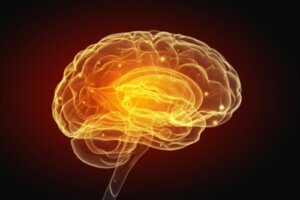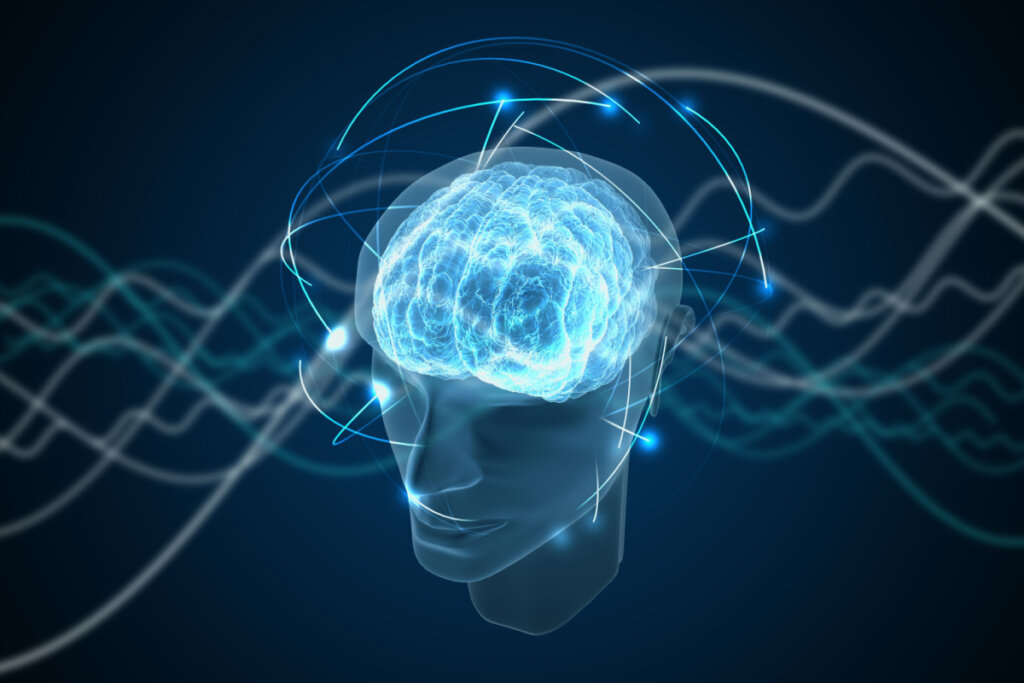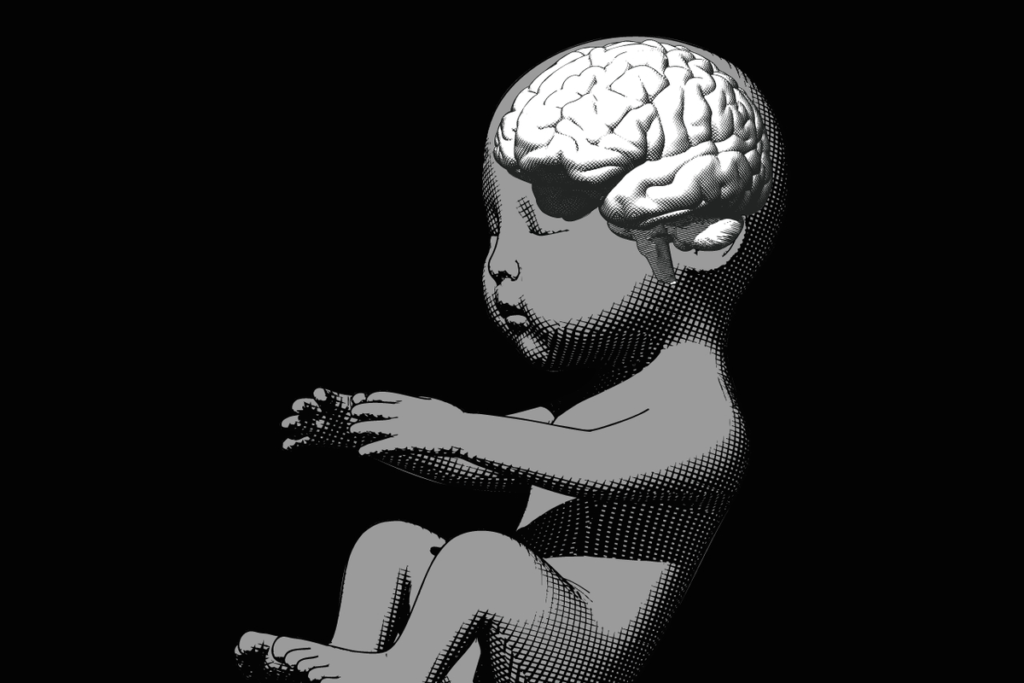Schizophrenia and Vascular Disorders of the Brain


Written and verified by the psychologist Valeria Sabater
Living with schizophrenia is like living in a parallel world, one that’s often extremely threatening and chaotic. In fact, the symptoms of this serious -and chronic- mental illness often mean the sufferer is unable to finish their studies or hold down a job. Not to mention the complexity of their interpersonal relationships.
Delusions, hallucinations, psychosis, thought disorders, deterioration of emotions, suicidal ideation… We know that about one percent of the population suffers from schizophrenia. Although antipsychotics have their benefits, treatment must be combined with psychosocial therapies. Moreover, to date, we still don’t know the mechanisms behind schizophrenia.
Traditionally, scientists considered alterations in both function and brain structure. For example, certain alterations in the production of dopamine. However, a recent investigation conducted by the Federal University of Rio de Janeiro (Brazil) suggested another interesting theory linked to vascularity.
Research has found that patients with schizophrenia have narrowed blood vessels in various areas of the brain.

Schizophrenia and vascular disorders of the brain: a possible causal link
The idea that certain abnormalities in the cellular structures of the brain lie behind schizophrenia isn’t new. Indeed, for years, experts have recognized the importance of the correct formation of neurons, their synapses, and the dendritic processes for the optimal function of infinite psychological processes.
The brain is like a precious stone that, from birth, must be properly polished and sculpted to function properly. While the correct formation of neurons is decisive, their vascularization is even more so. This means the correct development of blood vessels in brain tissue.
Efficient functioning of the cerebral cortex requires a precise construction of the neural and vascular networks. So much so that any alteration can mediate the appearance of multiple mental health problems. This explains the link between schizophrenia and vascular disorders, a factor that we now understand much better.
The development of schizophrenia could be due to alterations in astrocytes. These are neural cells that are decisive for the proper functioning and formation of the brain.
Astrocytes, possible triggers for schizophrenia
The above-mentioned study was recently published in the scientific journal, Molecular Psychiatry. It provides one more link in understanding the neurobiological basis of schizophrenia. In fact, it seems its origins could lie in the astrocytes, which are types of glial cells.
These small structures keep nerve cells in place and promote their proper development. Undoubtedly, they play an immense role in the function of the brain. However, until recently they’d been completely neglected by the field of neuroscience. Today, they’re known as the ‘nerve highway builders’.
- They’re key to the metabolic support of neurons.
- They’re essential in brain regeneration processes.
- They favor the formation of the blood-brain barrier.
- They build the information transmission pathways in the brain.
Astrocytes are important neurovascular units that connect neurons with the local blood flow, thus providing them with correct metabolic bases. In cases of schizophrenia sufferers, a striking particularity has been observed.
In fact, patients suffering from this mental disorder have dysfunctional astrocytes. They reduce metabolic flow to different brain regions. This defective vascularization alters a host of basic mental processes.
Cellular inflammation and the pathogenesis of schizophrenia
Schizophrenia and vascular disorders of the brain have a direct link with astrocytes. So, why are these nerve highway builders disturbed? Those responsible for the study have identified some possible explanations in this regard.
The researchers found inflammatory cytokines and various dysfunctions in proteins in the composition of astrocytes in schizophrenia sufferers. These inflammatory elements affect cerebral vascularization, reducing it and making it pathological.
Astrocytes also play a critical role in the immune response. The alteration in these types of cells lies behind an immature vascularization that greatly affects the cerebral cortex.

Will new treatments be designed in the future?
Schizophrenia manifests in young adulthood, between the ages of 21 and 30. However, alterations in astrocytes or glial cells appear in fetal neurodevelopment. These dysfunctions in cerebral vascularization gradually translate into the maturation of a brain with abnormalities. In the long term, this forms the basis of neurological diseases such as schizophrenia.
Therefore, it seems that it’s a genetic trigger that orchestrates the link between schizophrenia and vascular disorders of the brain. This early malformation of the brain circuit has serious impacts on the individual’s future. But, what are the chances that tomorrow, there may be an effective treatment for this condition?
At the moment, there are no treatments that can effectively prevent or treat schizophrenia. Moreover, it continues to be a chronic disease and the drugs used to treat it undoubtedly need improving. Consequently, there’s a need for further research, both in the neuronal field and in the origins of this sad and serious disease that continues to plague society.
Living with schizophrenia is like living in a parallel world, one that’s often extremely threatening and chaotic. In fact, the symptoms of this serious -and chronic- mental illness often mean the sufferer is unable to finish their studies or hold down a job. Not to mention the complexity of their interpersonal relationships.
Delusions, hallucinations, psychosis, thought disorders, deterioration of emotions, suicidal ideation… We know that about one percent of the population suffers from schizophrenia. Although antipsychotics have their benefits, treatment must be combined with psychosocial therapies. Moreover, to date, we still don’t know the mechanisms behind schizophrenia.
Traditionally, scientists considered alterations in both function and brain structure. For example, certain alterations in the production of dopamine. However, a recent investigation conducted by the Federal University of Rio de Janeiro (Brazil) suggested another interesting theory linked to vascularity.
Research has found that patients with schizophrenia have narrowed blood vessels in various areas of the brain.

Schizophrenia and vascular disorders of the brain: a possible causal link
The idea that certain abnormalities in the cellular structures of the brain lie behind schizophrenia isn’t new. Indeed, for years, experts have recognized the importance of the correct formation of neurons, their synapses, and the dendritic processes for the optimal function of infinite psychological processes.
The brain is like a precious stone that, from birth, must be properly polished and sculpted to function properly. While the correct formation of neurons is decisive, their vascularization is even more so. This means the correct development of blood vessels in brain tissue.
Efficient functioning of the cerebral cortex requires a precise construction of the neural and vascular networks. So much so that any alteration can mediate the appearance of multiple mental health problems. This explains the link between schizophrenia and vascular disorders, a factor that we now understand much better.
The development of schizophrenia could be due to alterations in astrocytes. These are neural cells that are decisive for the proper functioning and formation of the brain.
Astrocytes, possible triggers for schizophrenia
The above-mentioned study was recently published in the scientific journal, Molecular Psychiatry. It provides one more link in understanding the neurobiological basis of schizophrenia. In fact, it seems its origins could lie in the astrocytes, which are types of glial cells.
These small structures keep nerve cells in place and promote their proper development. Undoubtedly, they play an immense role in the function of the brain. However, until recently they’d been completely neglected by the field of neuroscience. Today, they’re known as the ‘nerve highway builders’.
- They’re key to the metabolic support of neurons.
- They’re essential in brain regeneration processes.
- They favor the formation of the blood-brain barrier.
- They build the information transmission pathways in the brain.
Astrocytes are important neurovascular units that connect neurons with the local blood flow, thus providing them with correct metabolic bases. In cases of schizophrenia sufferers, a striking particularity has been observed.
In fact, patients suffering from this mental disorder have dysfunctional astrocytes. They reduce metabolic flow to different brain regions. This defective vascularization alters a host of basic mental processes.
Cellular inflammation and the pathogenesis of schizophrenia
Schizophrenia and vascular disorders of the brain have a direct link with astrocytes. So, why are these nerve highway builders disturbed? Those responsible for the study have identified some possible explanations in this regard.
The researchers found inflammatory cytokines and various dysfunctions in proteins in the composition of astrocytes in schizophrenia sufferers. These inflammatory elements affect cerebral vascularization, reducing it and making it pathological.
Astrocytes also play a critical role in the immune response. The alteration in these types of cells lies behind an immature vascularization that greatly affects the cerebral cortex.

Will new treatments be designed in the future?
Schizophrenia manifests in young adulthood, between the ages of 21 and 30. However, alterations in astrocytes or glial cells appear in fetal neurodevelopment. These dysfunctions in cerebral vascularization gradually translate into the maturation of a brain with abnormalities. In the long term, this forms the basis of neurological diseases such as schizophrenia.
Therefore, it seems that it’s a genetic trigger that orchestrates the link between schizophrenia and vascular disorders of the brain. This early malformation of the brain circuit has serious impacts on the individual’s future. But, what are the chances that tomorrow, there may be an effective treatment for this condition?
At the moment, there are no treatments that can effectively prevent or treat schizophrenia. Moreover, it continues to be a chronic disease and the drugs used to treat it undoubtedly need improving. Consequently, there’s a need for further research, both in the neuronal field and in the origins of this sad and serious disease that continues to plague society.
All cited sources were thoroughly reviewed by our team to ensure their quality, reliability, currency, and validity. The bibliography of this article was considered reliable and of academic or scientific accuracy.
- Hanson DR, Gottesman II. Theories of schizophrenia: a genetic-inflammatory-vascular synthesis. BMC Med Genet. 2005 Feb 11;6:7. doi: 10.1186/1471-2350-6-7. PMID: 15707482; PMCID: PMC554096.
- Katsel P, Roussos P, Pletnikov M, Haroutunian V. Microvascular anomaly conditions in psychiatric disease. Schizophrenia – angiogenesis connection. Neurosci Biobehav Rev. 2017 Jun;77:327-339. doi: 10.1016/j.neubiorev.2017.04.003. Epub 2017 Apr 8. PMID: 28396239; PMCID: PMC5497758.
This text is provided for informational purposes only and does not replace consultation with a professional. If in doubt, consult your specialist.







